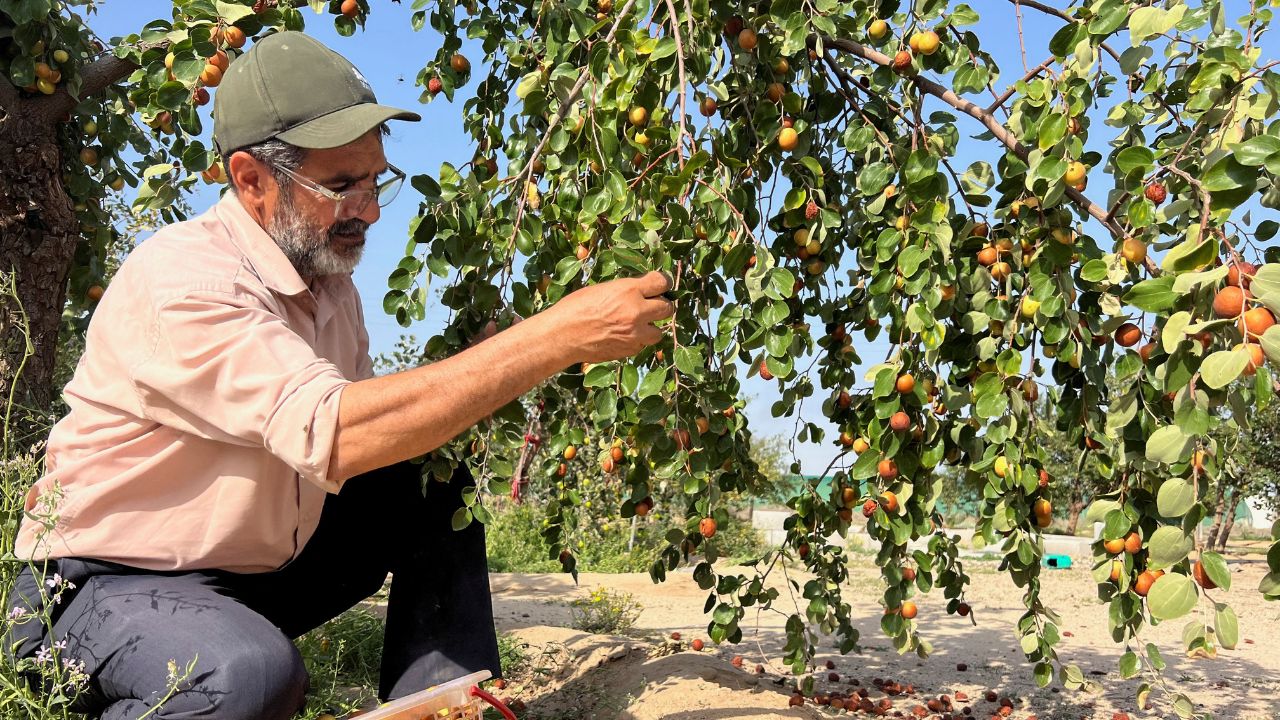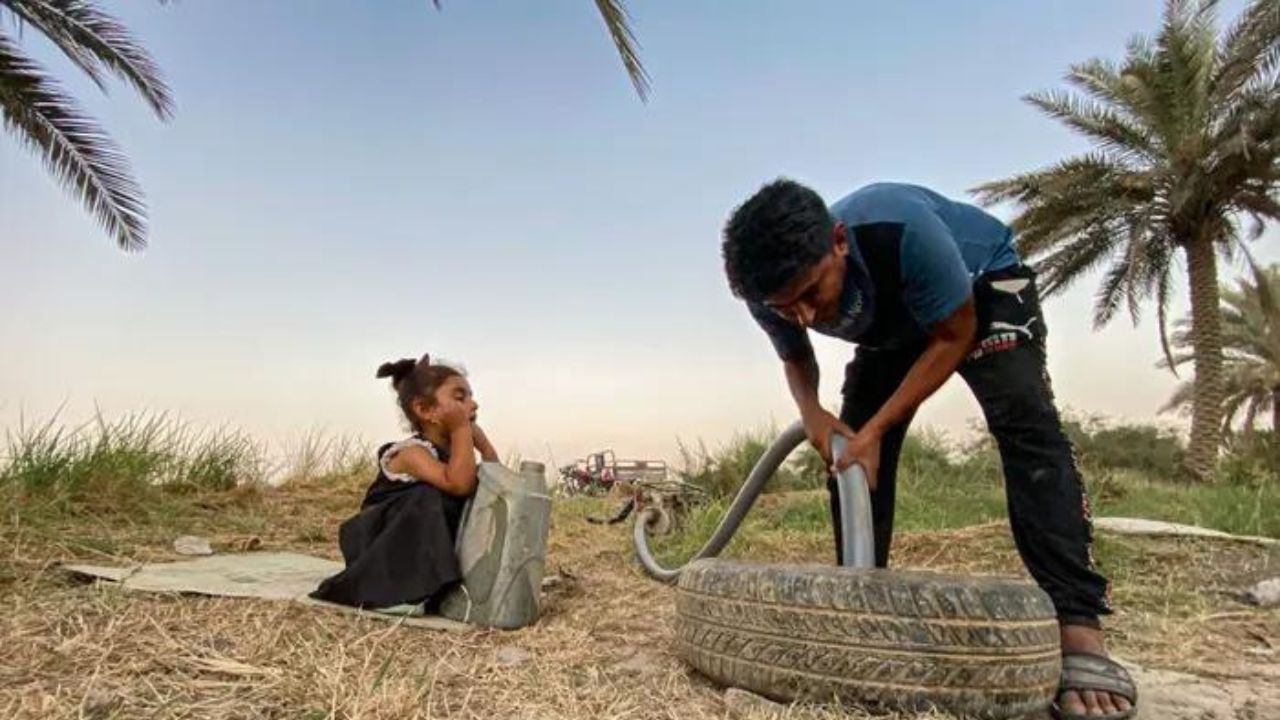In response to dwindling water resources and a failing date palm business, Iraqi farmer Ismail Ibrahim has opted to plant sidr, or jujube, trees instead.
With the country’s arable land facing significant challenges due to upstream damming of rivers, lower rainfall, and prolonged armed conflicts, farmers like Ibrahim are seeking alternative crops to sustain their livelihoods.
Benefits of Sidr Trees
Ibrahim highlights the advantages of Sidr trees, emphasizing their ability to thrive on limited water resources, including salty groundwater. Unlike date palms, sidr trees yield fruit within two years and offer better financial returns.

Their resilience to adverse conditions and superior taste even with salty water make them an attractive option for farmers like Ibrahim, particularly in sandy soil conditions.
Challenges and Economic Impact
The water shortage exacerbates the challenges faced by Iraqi farmers, contributing to the decline of traditional crops like date palms.
Abbas Ali, another farmer, laments the detrimental impact of salt contamination on his palm farm, forcing many to abandon cultivation.

The persistent presence of salt in the soil poses long-term challenges, underscoring the urgent need for sustainable solutions amidst Iraq’s efforts to rebuild its economy post-conflict.
